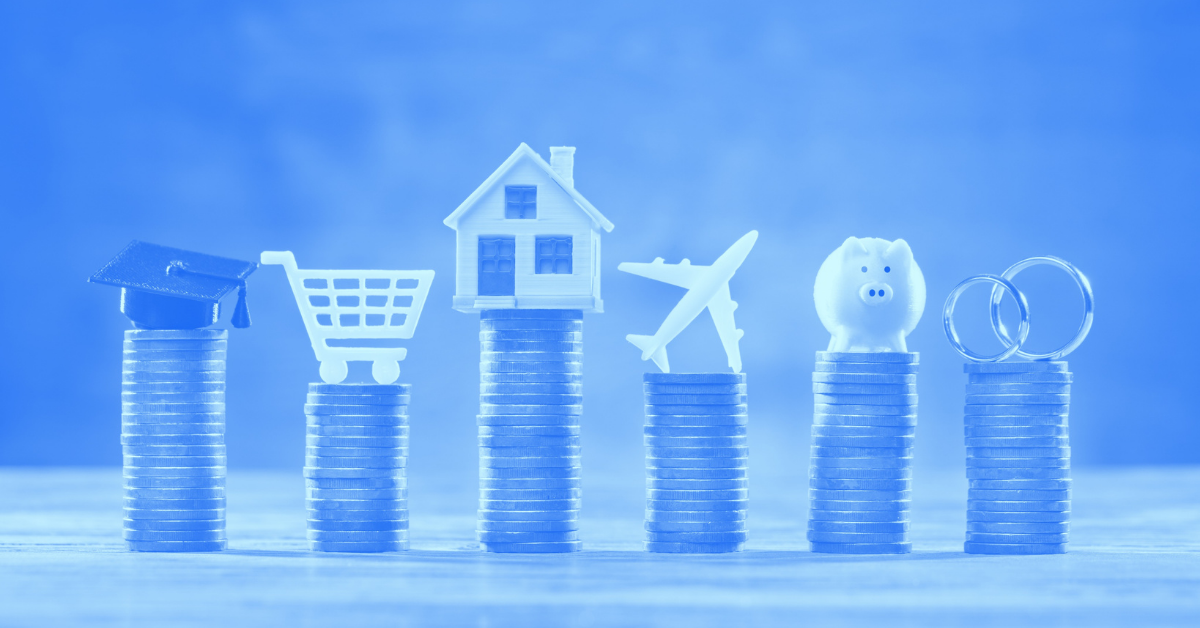These Related Stories
The Difference Between Cost And Price
Share this

Every day you are faced with choices for what to purchase.
You often make these choices by analyzing what product has the better features and also what is the price of the product versus comparable options. But when you only look at the price tag of an item, you are only going surface deep.
"In order to make a truly informed decision, you have to understand what the true “cost” of a product is. Only then can you know if your decision is the correct one."
THE BACKGROUND
A couple years ago one of my family members was faced with a buying decision.
All of their home appliances were severely outdated and breaking down, one by one. The refrigerator, stove, microwave, and dishwasher; it all had to go.
They started to look around at their options by going to all of the local retailers.
A little Sunday afternoon trip to HomeDepot, maybe? – “I don’t know if we’ll have enough time…” – Will Ferrell, Old School
As they began to assess the landscape they realized that there was no shortage of choices or price points.
Anyone who has purchased home appliances knows that the prices can have a dramatic range, going from around $1,000 all the way up to $10,000 or more!
They knew they weren’t looking for the high-end stuff, but they weren’t sure how much to spend, or which brand to purchase.
Once they looked at their budget and decided their overall price range, it came down to which brand to go with.
At that point, we got into a discussion on price vs cost.
WHAT IS PRICE VS COST?
When I talk about Price vs cost I’m referring to what that means to consumers, not a business.
In essence, the price of an item is what you pay for it at the time of purchase. The cost of an item, on the other hand, can be much different.
"The cost of an item includes the price, but it also includes the lifetime expense of using the item."
For example, if we think about the above story, home appliances were the product being evaluated. The price would be what is paid to the store at the time of purchase. The cost of the item will then include how much electricity it takes to run those appliances, as well as any repair costs.
If you have a dependable set of appliances that are energy efficient, their total cost could be much lower than a set that uses a lot of energy and breaks down on a regular basis.
So, what are some other examples of price vs cost?
EXAMPLES OF PRICE VS COST
Cars
The ongoing cost of a car can vary dramatically depending on fuel efficiency and how reliable the car is. You’ll also want to factor in how long the car is expected to last, and its resale/trade-in value.
It doesn’t take much evaluation to understand it costs a lot more to pay for gas for something like a Hummer versus a Prius. Gas mileage estimates for a Hummer range between 10-13 mpg, while a Prius is expected to get around 50 mpg.
The average owner of a Hummer is going to spend nearly 5 times as much on gas as a Prius owner.
Clearly, those are two very distinct markets, so I don’t think many people are choosing between a Hummer or a Prius, but you get my point.
Home
Maybe you can afford to pay the purchase price for a bigger house, but can you afford the ongoing costs?
Routine upkeep can cost a fortune depending on the size of your home. Having a new roof put in, replacing wood flooring throughout the house, and even landscaping can all add up fast. A lot of these costs, like flooring, are based on the square footage.
As they say, caveat emptor (buyer beware).
Pool
Thinking of putting a pool into your backyard?
Once again, the sticker price is one thing to deal with, but what about the annual costs to keep it running? You need to worry about heating, cleaning, chemical testing, repairs, and the cost to open and close the pool.
It can cost you hundreds of dollars each month to keep your pool running. Make sure you are including the lifetime costs into your budgeting.
Boats
And let’s not forget one of the biggest money eaters: owning a boat.
I’ve never owned a boat, but I know many people who have. Every one of them says that the price of the boat is the least of your worries.
The amount of money you have to put into maintaining the boat throughout the year is incredibly high. Between gas, renting a slip, storing it in the off-season, and maintenance, the total costs can be in the thousands each month.
LIFETIME COST SAVINGS
It’s not all negative. You can also play this same price vs cost evaluation game to see where you could be saving money over the long term.
One example you probably often hear about is energy efficient lightbulbs. These lightbulbs can have a much higher price tag when you purchase them, but over the lifetime of the bulb you could be saving a whole lot.
Another example is energy efficient windows in your home.
Lots of heat or AC can escape through a poorly installed or low-quality window. Being able to maintain a stable temperature inside your home can save you a lot of money over the course of a 30-year mortgage.
And finally, examples like the above comparison of cars and gas mileage is a great way you can save on lifetime costs by making smarter buying decisions.
THE BOTTOM LINE
The main point is that you need to consider more than just the sticker price of whatever you are buying. To make a truly wise decision you need to think about the long-term costs, and weigh those into your buying decision.
This article originially appeared on Capable Wealth
![jaredprofilepic[1].jpg](https://advice.xyplanningnetwork.com/hs-fs/hubfs/Contributors/jaredprofilepic%5B1%5D.jpg?width=194&name=jaredprofilepic%5B1%5D.jpg) About the Author
About the Author
Capable Wealth is a fee-only financial planning and life coaching company dedicated to helping people live their ideal lives by providing clarity and empowering them to make great money decisions.
They help doctors and dentists in the early stages of their careers bridge the gap between their current life and their dream life by creating a plan to implement smart money habits. They are here to walk with individuals on their journey as they grow your wealth, and discover what they are truly capable of.
Do you know XYPN advisors provide virtual services? They can work with clients in any state! View Jared's profile
Share this
- Good Financial Reads (924)
- Financial Education & Resources (892)
- Lifestyle, Family, & Personal Finance (865)
- Market Trends (114)
- Investment Management (109)
- Bookkeeping (55)
- Employee Engagement (32)
- Business Development (31)
- Entrepreneurship (29)
- Financial Advisors (29)
- Client Services (17)
- Journey Makers (17)
- Fee-only advisor (12)
- Technology (8)
Subscribe by email
You May Also Like

4 Questions to Ask Your Financial Advisor

The Power of Budgeting
-1.png)

